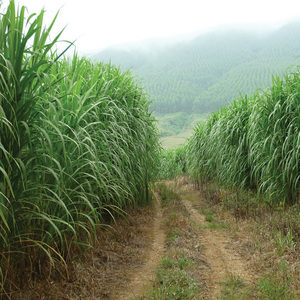USDA approves Viaspace's Giant King Grass in U.S.




Viaspace Inc.
October 12, 2012
BY Viaspace Inc.
Viaspace Inc. has announced that its proprietary, high-yield, dedicated energy crop Giant King Grass has been released from quarantine by the USDA Animal and Plant Health Inspection Service for distribution in the U.S.
APHIS has the mission of protecting and promoting US agricultural health in support of the overall mission of the USDA, which is to protect and promote food, agriculture, natural resources and related issues.
Advertisement
Giant King Grass was grown at the APHIS facility in Beltsville Maryland under the Plant Germplasm Quarantine Program. It was extensively tested for pathogens including analysis of the nucleic acid extract using E-Probe Diagnostic Nucleic Acids Analysis. It was found to be pathogen free. After another inspection by the state of Maryland Department of Agriculture, which issued a phytosanitary certificate, the Giant King Grass was delivered to Viaspace.
“Viaspace is expanding its activities into the United States as part of our long-term strategy,” said CEO Carl Kukkonen. “Bioelectricity, biofuels, biochemicals, bioplastics and other biomaterials all require reliable, low cost biomass as fuel or feedstock. Our dedicated energy crop, Giant King Grass, has the highest yield of any crop in the world and meets these requirements.”
“We have developed a well-defined and ambitious strategy to build shareholder value anchored in our unique corporate expertise and our vision for expanding the global footprint of Giant King Grass,” said Kevin Schewe, Viaspace chairman of the board. “Our shareholders will see that we are simultaneously executing that strategy in Southeast Asia and now actively here in the Americas.”
Advertisement
Related Stories
The U.S. Department of Energy Bioenergy Technologies Office (BETO) announced up to $23 million in funding to support research and development (R&D) of domestic chemicals and fuels from biomass and waste resources.
The U.S. DOE has announced its intent to issue funding to support high-impact research and development (R&D) projects in two priority areas: sustainable propane and renewable chemicals and algal system cultivation and preprocessing.
Sens. Sherrod Brown, D-Ohio, and Pete Ricketts, R-Neb., in August introduced the Renewable Chemicals Act, a bill that aims to create a tax credit to support the production of biobased chemicals.
The Chemical Catalysis for Bioenergy Consortium, a consortium of the U.S. DOE’s Bioenergy Technologies Office, has launched an effort that aims to gather community input on the development of new biomass processing facilities.
USDA on March 8 celebrated the second annual National Biobased Products Day, a celebration to raise public awareness of biobased products, their benefits and their contributions to the U.S. economy and rural communities.
Upcoming Events










